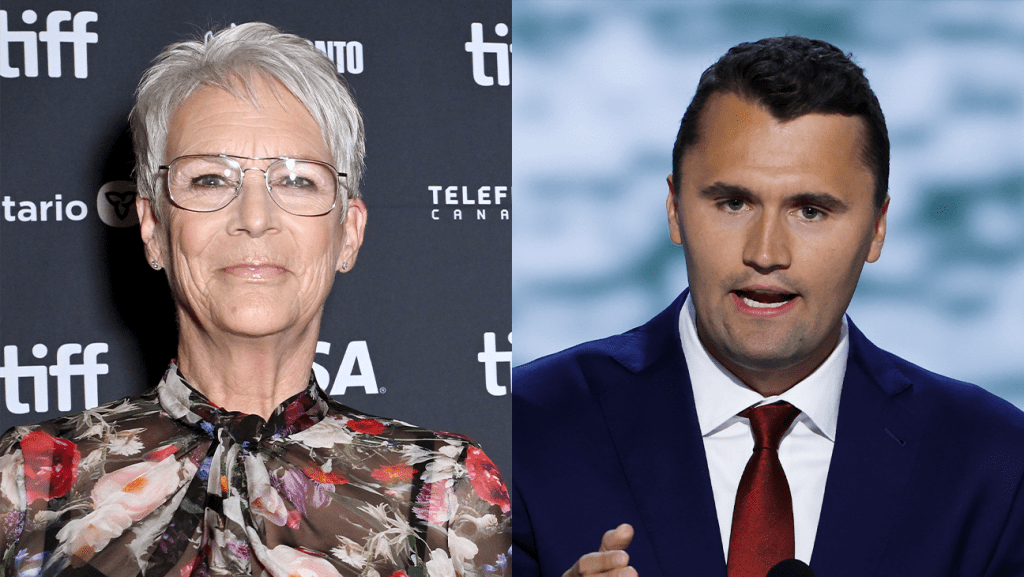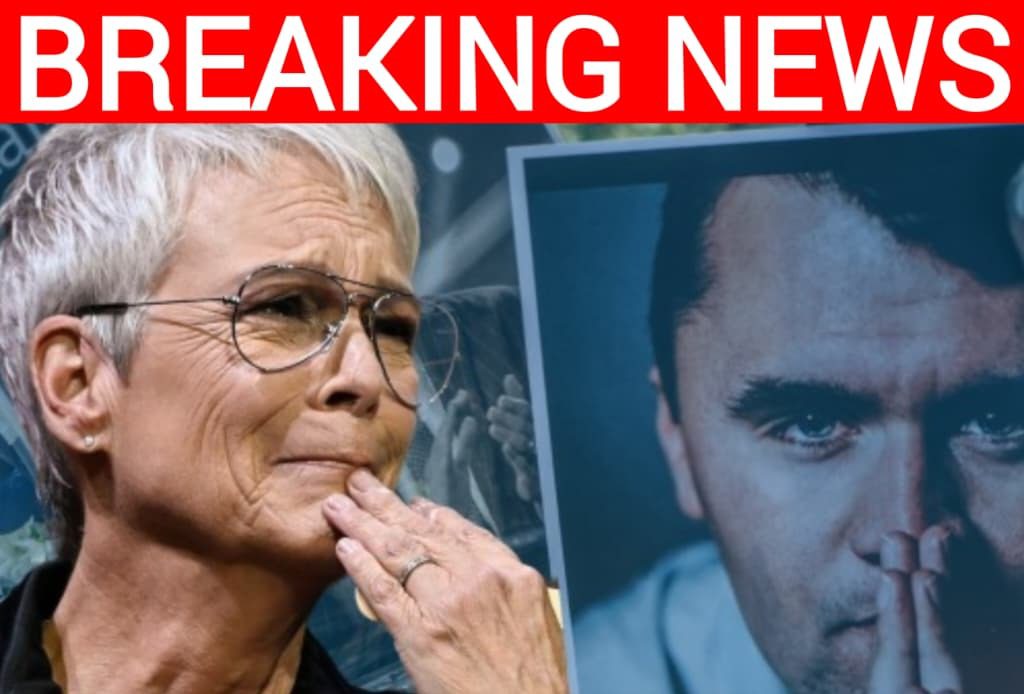Jamie Lee Curtis Breaks Down In Tears Reflecting On Charlie Kirk’s Death, Calls Him A Man Of Faith Despite Disagreeing With His Politics
Jamie Lee Curtis has never been afraid to speak her mind, but her recent words about Charlie Kirk left many surprised and even emotional. Speaking candidly, the Hollywood actress broke down in tears as she reflected on his passing and what it meant to her personally, despite the fact that she disagreed with almost everything he said during his lifetime. She admitted she found many of his political ideas “abhorrent” but still acknowledged him as a man of faith, a husband, and a father. In a world where it often feels like lines are sharply drawn and people refuse to see any humanity in those they disagree with, Curtis chose to speak with empathy, and her honesty struck a chord.

She even slipped and at first called him “Charlie Crist” before correcting herself and saying “Kirk,” but she explained why she made that association. To her, his faith was so central to who he was that it made her think of Christ, even though they stood on opposite sides politically. Her voice cracked as she said that she hoped in his final moments he felt connected to that faith, because no matter how much she disagreed with him, she could not ignore that he was still a man who deeply believed in God. She admitted she could not imagine what his wife and children were going through, and in that moment her tone was not political but human.

Curtis also made a powerful point about the way we as a society consume images of tragedy. She said she has no interest in ever watching the footage of Kirk’s assassination, calling it traumatizing and unnecessary. She compared it to her own lifelong association with November 22nd, the day President John F. Kennedy was assassinated, which also happens to be her birthday. She recalled how the Zapruder film became one of the only visual records of that horrific moment, and how it still haunts people decades later. Now, with the internet and constant replaying of violent events, she worried that people have become numb to tragedy. She warned that we do not even fully understand what the long-term psychological effects of that constant exposure might be.
Her comments were raw and deeply personal, showing a side of grief that was not about politics or ideology but about the humanity that connects all of us. She admitted that she had no desire to see Kirk’s death on screen, insisting that people should not consume the suffering of others as though it were entertainment. Her words drew a line between disagreement and compassion, reminding listeners that even when we reject someone’s ideas, we can still acknowledge their dignity as human beings.
Some critics were quick to twist her remarks, but for many who heard her, it was a rare moment of vulnerability and grace. Curtis did not have to say anything at all, and certainly not in such an emotional way, but she chose to speak from the heart. She did not endorse Kirk’s politics and was clear about that, but she also refused to strip him of his humanity. In today’s world, that choice alone stands out as remarkable.


